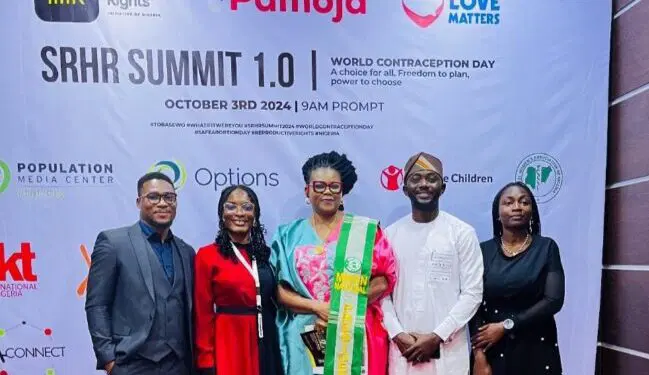Experts in reproductive health have said contraception should be free and available to all women, regardless of age, disability, or marital status. They tasked the federal government to increase funding for reproductive health, provide free pregnancy care, and make contraceptive commodities accessible to women.
The reproductive health experts spoke at the Sexual and Reproductive Health and Rights (SRHR) Summit 1.0, held to mark the 2024 World Contraception Day in Abuja. The event, organized by the Media Health and Rights Initiative of Nigeria, aimed to address Nigeria’s pressing reproductive health challenges and was themed “A Choice for All: Freedom to Plan, Power to Choose.” It brought together healthcare providers, policymakers, and civil society organizations.
Prof. Rosemary Ogu, the National President of the Medical Women’s Association of Nigeria, advocated for increased funding for reproductive health in the country. According to her, the government should not only increase funding but also ensure the provision of free pregnancy care and accessible contraceptive commodities. She emphasized the importance of education and demand creation, noting that primary health care centers need to be functional and effectively utilized.
“Contraception reminds us that there’s a strategy to prevent women from dying, enable them to go to school, and help adults reach their full potential,” she stated. Prof. Ogu highlighted the significant barriers rural communities face in accessing family planning commodities, resulting in higher maternal mortality rates. She called on the government to tackle this challenge by increasing funding for reproductive health, providing free pregnancy care, and making contraceptive commodities accessible.
Dr. Lucky Palmer, the Country Director of IPas Nigeria Health Foundation, also called for universal access to modern contraceptives and comprehensive reproductive health services in Nigeria. He expressed concern over cultural and systemic barriers that hinder access to contraception, especially for vulnerable groups such as adolescents and women with disabilities.
“In Nigeria, we often assume adolescents shouldn’t have sex, so they don’t need contraception. However, contraception should be free and available to all, regardless of age, disability, or marital status,” he said. Dr. Palmer noted that unplanned pregnancies contribute to over 1,500 maternal deaths annually in Nigeria and emphasized that these deaths are easily preventable with access to effective contraceptives.
“Contraceptives can prevent these deaths. It is a fundamental right for all, including adolescents, married women, and young men,” he stressed, calling for an urgent overhaul of Nigeria’s reproductive healthcare system to cater to everyone, especially marginalized groups.

